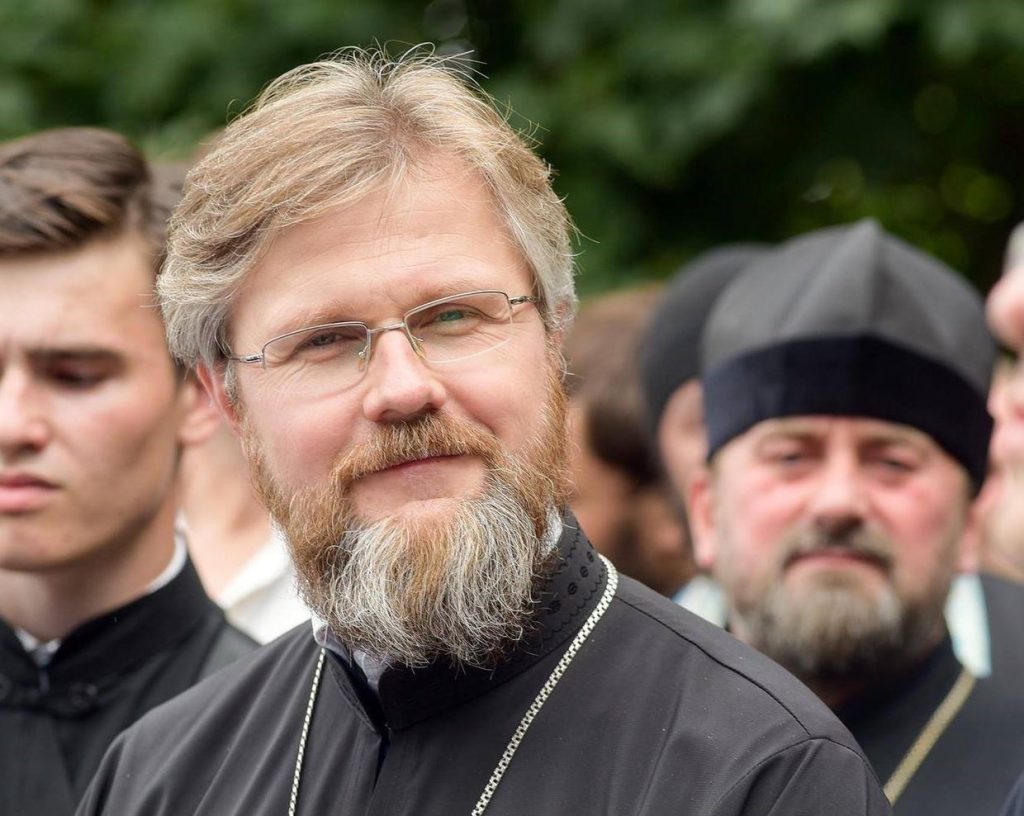The Security Service of Ukraine (SBU) conducted searches at the premises of Archpriest Mykola Danylevych, a senior member of the Ukrainian Orthodox Church of the Moscow Patriarchate (UOC-MP) on April 12. The UOC-MP has been accused of aligning with the Russian government during the war, which the church’s leadership denies. Danylevych, who is the deputy head of the UOC-MP’s synodal department for external relations, is suspected of supporting the “Russian world” ideology and justifying Russian aggression. In 2017, he participated in a delegation seeking to convince Ecumenical Patriarch Bartholomew not to grant autocephaly to the Orthodox Church of Ukraine (OCU), which was eventually granted in 2019. The UOC-MP has not yet commented on the reported searches.
Patriarch Kirill of Moscow, the head of the Russian Orthodox Church (ROC), issued an order titled “The Present and Future of the Russian World” on March 27, which has been deemed “revolutionary.” The order asserts that from a spiritual and moral perspective, Russia’s war against Ukraine is seen as a special military operation. This raises questions about the church’s alignment with the Russian government and its involvement in the conflict. The UOC-MP’s perceived loyalty to Russia has caused tensions within Ukraine, leading to accusations of support for Russian aggression.
The issue of Ukraine’s Russia-linked church raises questions about the country’s religious identity and its relationship with Russia. The UOC-MP’s alleged alignment with the Russian government has complicated the church’s standing in Ukraine and its role in the ongoing conflict. The reported searches at the premises of a senior UOC-MP member highlight the tensions within the church and its perceived ties to Russia. The situation underscores the complexities of religious and political affiliations in Ukraine and the challenges faced by those trying to maintain independence and sovereignty.
The actions of the SBU in conducting searches at the premises of Archpriest Mykola Danylevych indicate the government’s efforts to address concerns about the influence of the UOC-MP and its alleged connections to the Russian government. By targeting a senior member of the church, the authorities are sending a message about the need to uphold Ukraine’s sovereignty and prevent outside interference in religious affairs. The UOC-MP’s response to the searches, as well as its stance on the accusations of aligning with the Russian government, will be closely watched as the situation unfolds.
The role of the Russian Orthodox Church and its relationship with Ukraine has been a source of controversy and tension in the region. The UOC-MP’s ties to the Moscow Patriarchate have been a point of contention, with accusations of supporting Russian interests in Ukraine. The issue of autocephaly for the Orthodox Church of Ukraine has further exacerbated these tensions, as it symbolizes a break from the Russian Orthodox Church and a move towards independence. The actions taken by Ukrainian authorities against a senior UOC-MP member reflect the ongoing struggle to assert Ukraine’s sovereignty and maintain independence in the face of external influences. The situation underscores the complexities of religious and political dynamics in the region.
In conclusion, the recent searches at the premises of a senior member of the Ukrainian Orthodox Church of the Moscow Patriarchate by the SBU highlight the ongoing tensions surrounding the church’s alleged alignment with the Russian government and its role in the conflict in Ukraine. The accusations of supporting the “Russian world” ideology and justifying Russian aggression have raised concerns about the church’s loyalty and its impact on Ukraine’s sovereignty. The situation underscores the complexities of religious and political affiliations in Ukraine and the challenges faced by those seeking to maintain independence and sovereignty in the face of external pressures.


